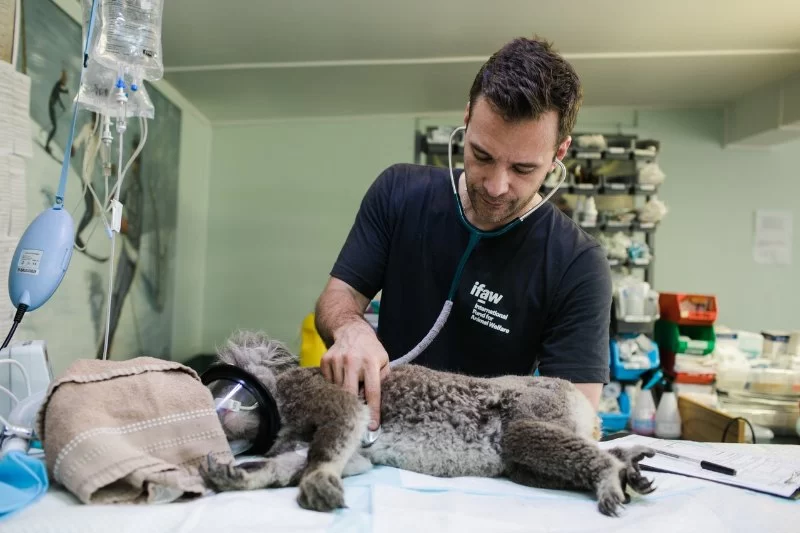What Courses to Take to Become a Veterinarian: A Step-by-Step Academic Guide
- starting-early-high-school-foundation-matters - Starting Early: Why Your High School Foundation Matters
- pre-vet-courses-in-college - Pre-Vet Courses in College: Building the Right Foundation
- core-science-requirements-and-why-they-matter - Core Science Requirements and Why They Matter
- beyond-the-sciences-humanities-math-and-electives - Beyond the Sciences: Humanities, Math, and Electives
- extracurriculars-and-hands-on-experience - Extracurriculars and Hands-On Experience
- how-to-stand-out-on-your-vet-school-application - How to Stand Out on Your Vet School Application
- investing-in-your-future-resources-for-future-vets - Investing in Your Future: Resources for Future Vets
1. Starting Early: Why Your High School Foundation Matters
Understanding what courses to take to become a veterinarian starts before college. While veterinary school may seem years away, high school is where the groundwork is laid. Students serious about animal health careers should focus on biology, chemistry, algebra, and even writing. These subjects not only help prepare for college-level science but also sharpen communication and analytical skills, which are critical for veterinarians.
Take the case of Sarah, a practicing vet in Austin, who says her early exposure to biology labs in high school gave her an edge in college. She joined 4-H and volunteered at a local animal shelter, which further sparked her passion. These early decisions can have long-term benefits for academic readiness and personal motivation.
2. Pre-Vet Courses in College: Building the Right Foundation
Once you enter college, understanding the specific pre-vet courses is crucial. Most students major in biology, animal science, or related disciplines, but your major is less important than fulfilling vet school prerequisites. These include two semesters each of biology, chemistry (general and organic), physics, and biochemistry.
For example, Cornell and UC Davis—two top veterinary schools—have very similar prerequisites. Missing even one can delay your application or require expensive post-bac classes. So early academic advising is key. Additionally, coursework in animal nutrition, physiology, and microbiology is strongly encouraged, even if not mandatory.
3. Core Science Requirements and Why They Matter
The heart of any pre-veterinary program is the hard sciences. Why? Because veterinary medicine is rooted in understanding anatomy, disease, biology, and pharmacology. Without a solid science background, students often struggle with the rigor of vet school.
Courses like General Chemistry and Organic Chemistry serve as gatekeepers—students must pass these to move forward. Physiology helps students grasp how animals' bodies function, while microbiology prepares them for infectious disease knowledge. These aren't just boxes to check—they’re building blocks of professional competency.
4. Beyond the Sciences: Humanities, Math, and Electives
While science dominates the coursework, don’t underestimate the importance of math, writing, and social sciences. Veterinarians must communicate clearly with pet owners, work in teams, and make ethical decisions under pressure. Courses in psychology, ethics, and English composition support these non-clinical but equally vital skills.
Math courses, especially statistics, are increasingly required by vet programs. Not only does statistics support clinical research, but it also helps vets evaluate treatment outcomes and analyze lab reports. Taking these courses early helps develop a well-rounded academic profile.
5. Extracurriculars and Hands-On Experience
Academic readiness is essential, but real-world experience is what often separates good candidates from great ones. Shadowing a veterinarian, interning at a wildlife rehab center, or working on a farm exposes you to different fields—companion animal, large animal, exotic animal, etc.
Students who diversify their hands-on experience show commitment and gain insight into whether veterinary life is really for them. One student who interned at both a small animal clinic and a dairy farm said it helped her confirm her interest in rural vet work. These stories shape your personal statement and interviews later.
6. How to Stand Out on Your Vet School Application
The veterinary school application process is competitive, and GPA alone won’t cut it. The American Association of Veterinary Medical Colleges (AAVMC) reports that successful applicants often exceed the minimum requirements in both academics and experience.
Building relationships with professors for strong recommendation letters, engaging in research, and demonstrating leadership in clubs or community service can make you stand out. Admissions committees are looking for future vets who show resilience, empathy, and curiosity—not just textbook knowledge.
7. Investing in Your Future: Resources for Future Vets
Now that you understand what courses to take to become a veterinarian, it’s time to act. Start researching schools early, talk to pre-vet advisors, and create a four-year plan that includes required courses and hands-on experience.
At Hidden Brook Veterinary, we not only provide care but also offer mentorship and internship opportunities for aspiring vets. From shadowing experiences to educational workshops, we are committed to helping the next generation of animal doctors thrive. Curious where to begin? Contact Hidden Brook Veterinary today and take the first real step toward becoming a veterinarian.
Whether you’re a high school student or already in college, knowing what courses to take to become a veterinarian can change your career trajectory. Start now, stay informed, and let your passion for animals guide your academic journey.












